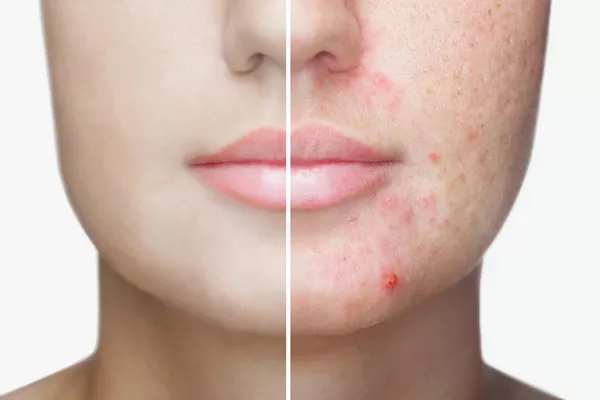Scarring is a natural part of the healing process after an injury or trauma to the skin. While many scars fade over time, some may remain permanent. Understanding the different types of scars and their characteristics is crucial in comprehending which scars are likely to be permanent. In this article, we will explore various types of scars and delve into the factors that contribute to their permanence.
1. Hypertrophic Scars:
Hypertrophic scars occur when there is an overproduction of collagen during the healing process. These scars are characterized by raised, red, and thickened tissue. Although they can be visually prominent, hypertrophic scars tend to remain within the boundaries of the original wound. With proper treatment and care, such as silicone gel sheets, corticosteroid injections, or laser therapy, hypertrophic scars can often improve significantly, reducing their permanence.
2. Keloid Scars:
Keloid scars, similar to hypertrophic scars, result from excessive collagen production. However, keloids extend beyond the boundaries of the initial wound and may continue to grow indefinitely. They appear as raised, thick, and rubbery lesions that are often darker than the surrounding skin. Keloid scars tend to be more challenging to treat and are more likely to be permanent. Treatment options include surgical excision, corticosteroid injections, cryotherapy, and laser therapy.
3. Atrophic Scars:
Atrophic scars develop when there is a loss of tissue during the healing process. These scars are characterized by a sunken or depressed appearance and can be further classified into three subtypes:
a. Boxcar Scars: Boxcar scars have well-defined edges and appear as round or oval depressions with steep sides. They are commonly caused by acne or chickenpox and are often permanent. Treatment options include dermal fillers, microdermabrasion, chemical peels, and laser resurfacing.
b. Ice Pick Scars: Ice pick scars are deep, narrow, and V-shaped scars that extend into the skin. They are typically caused by severe acne and are considered challenging to treat. Treatment options include punch excision, laser resurfacing, and dermal fillers.
c. Rolling Scars: Rolling scars have a wave-like appearance with gently sloping edges. They occur due to tethering of the skin to deeper structures and can be improved with treatments such as subcision, microneedling, or fractional laser therapy.
4. Contracture Scars:
Contracture scars are a result of significant tissue loss, such as burns or large wounds. These scars often tighten and contract the surrounding skin, potentially affecting mobility. Contracture scars are usually permanent and may require surgical intervention to release the tightened tissue and improve functionality.
5. Stretch Marks:
Stretch marks, also known as striae, are a common type of scar that occurs due to rapid stretching of the skin during periods such as pregnancy or rapid weight gain. Initially appearing as reddish or purple lines, they gradually fade over time but may never completely disappear. Although stretch marks can be treated with various therapies, achieving complete removal is unlikely.
Conclusion:
While many scars tend to fade and become less noticeable with time, certain types of scars are more likely to be permanent. Hypertrophic scars, keloid scars, atrophic scars (especially ice pick scars), and contracture scars are among those that can persist long-term. It’s important to remember that each scar is unique, and the effectiveness of treatment options can vary depending on factors such as scar location, size, and individual healing characteristics. Consulting with a dermatologist or a plastic surgeon is recommended for personalized advice and guidance on scar management.


